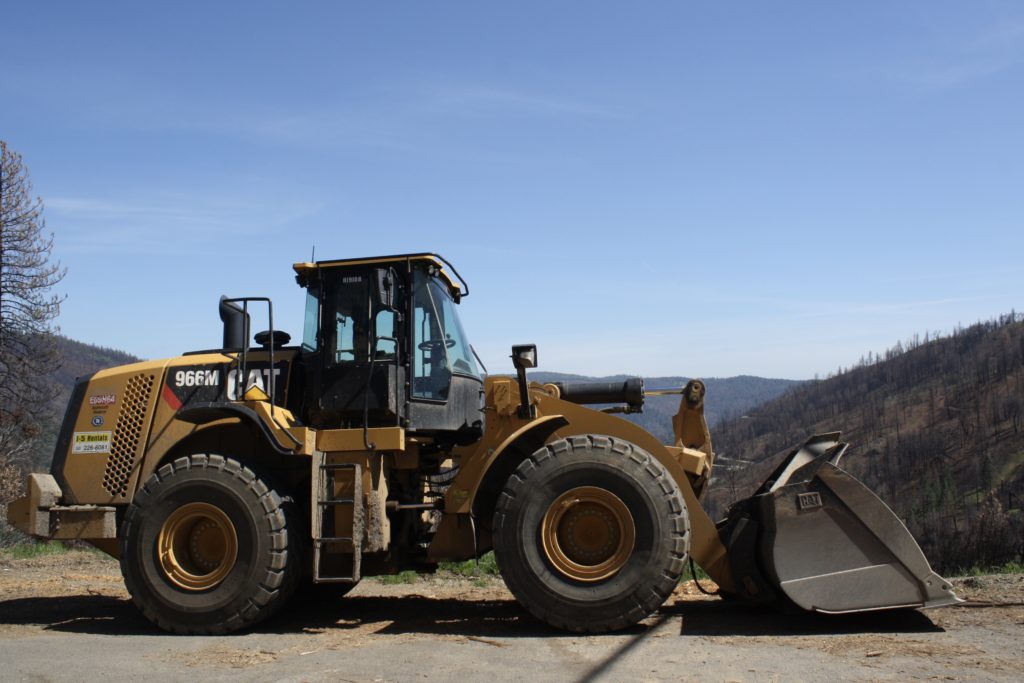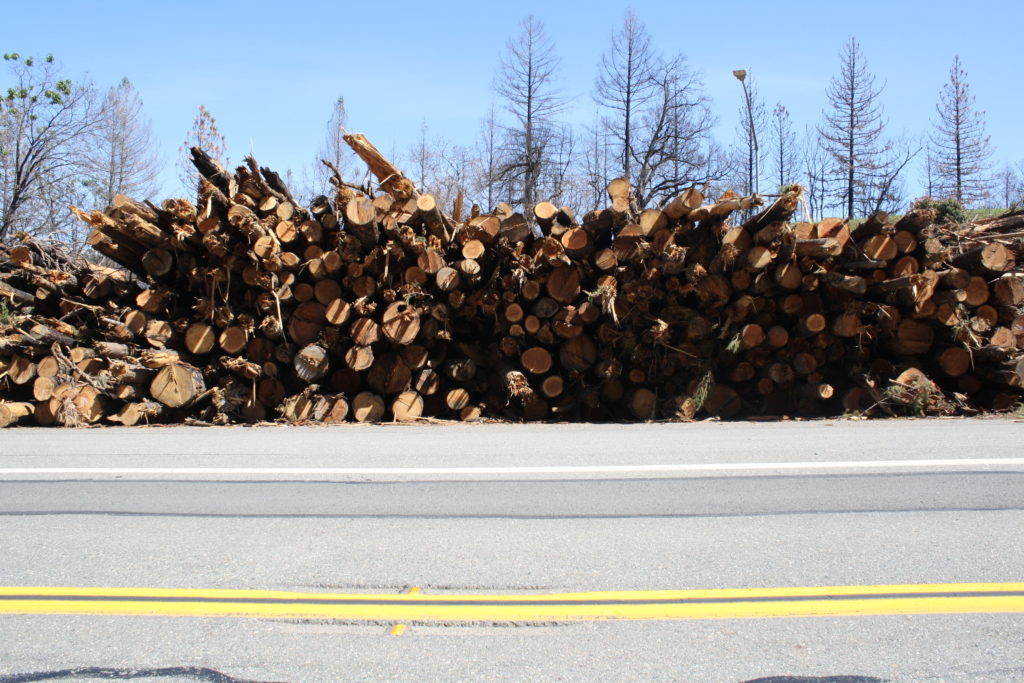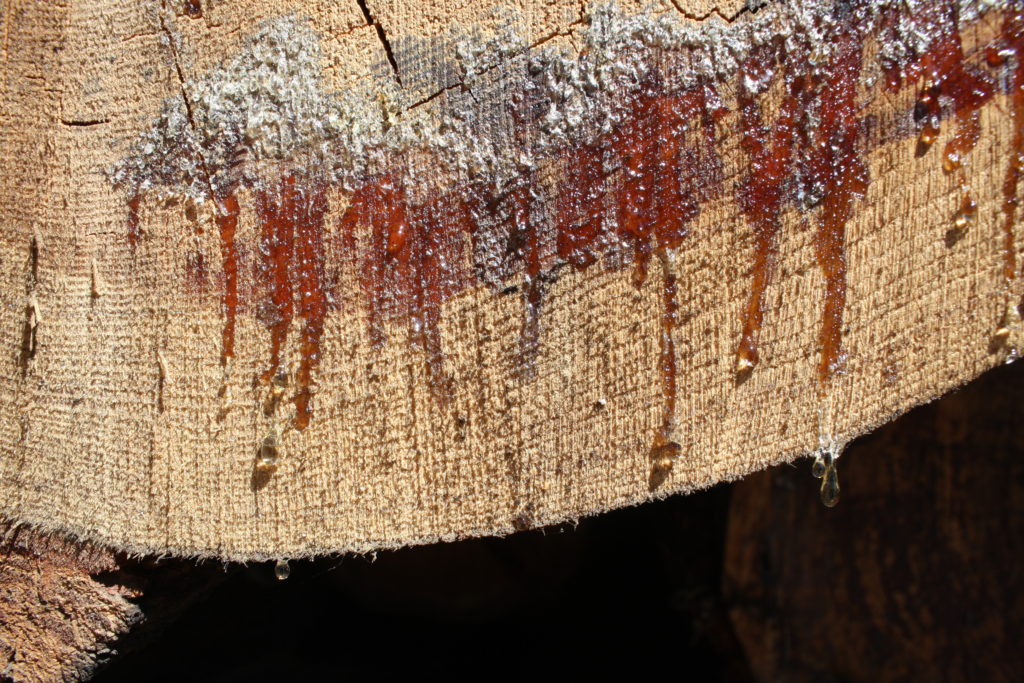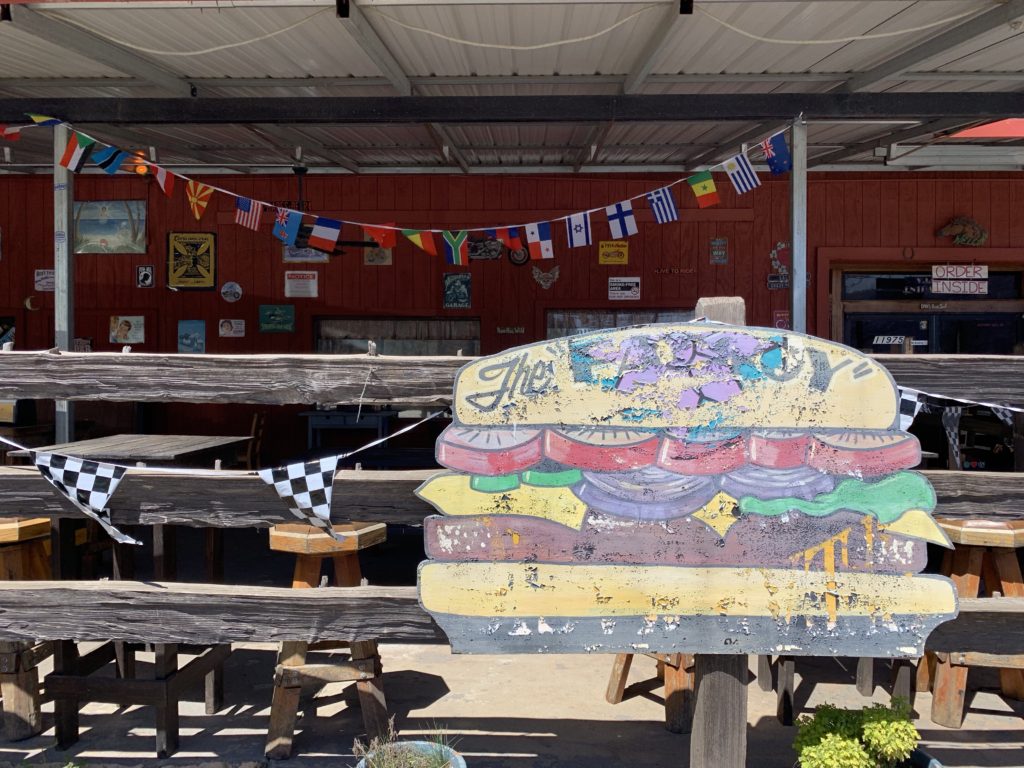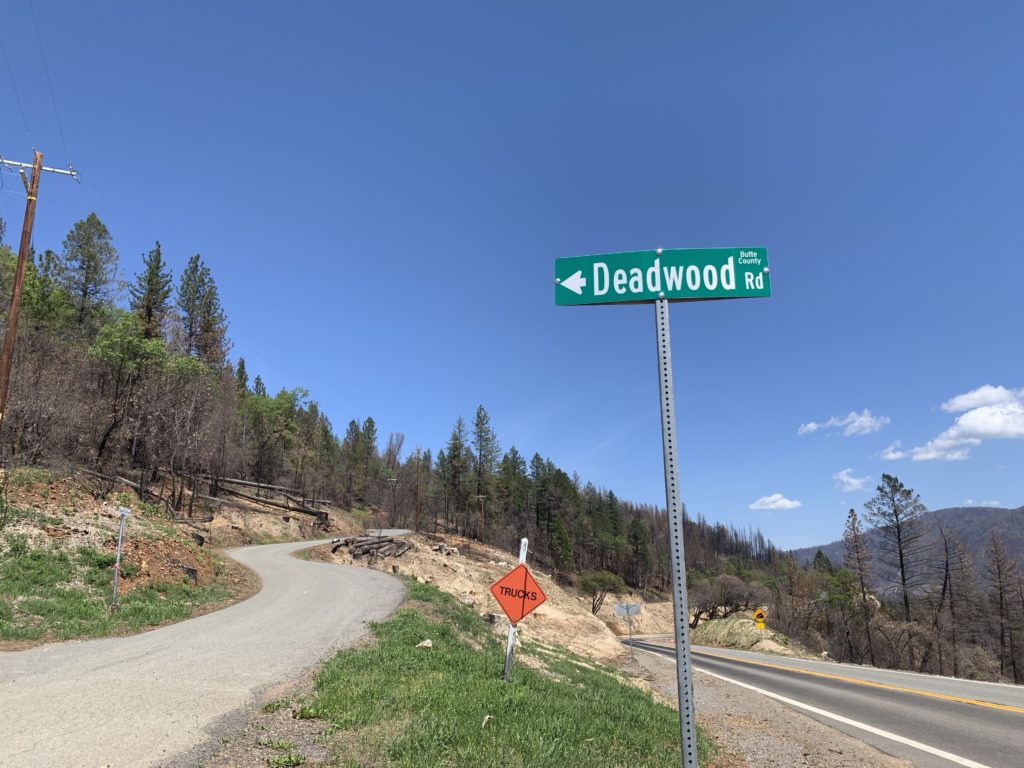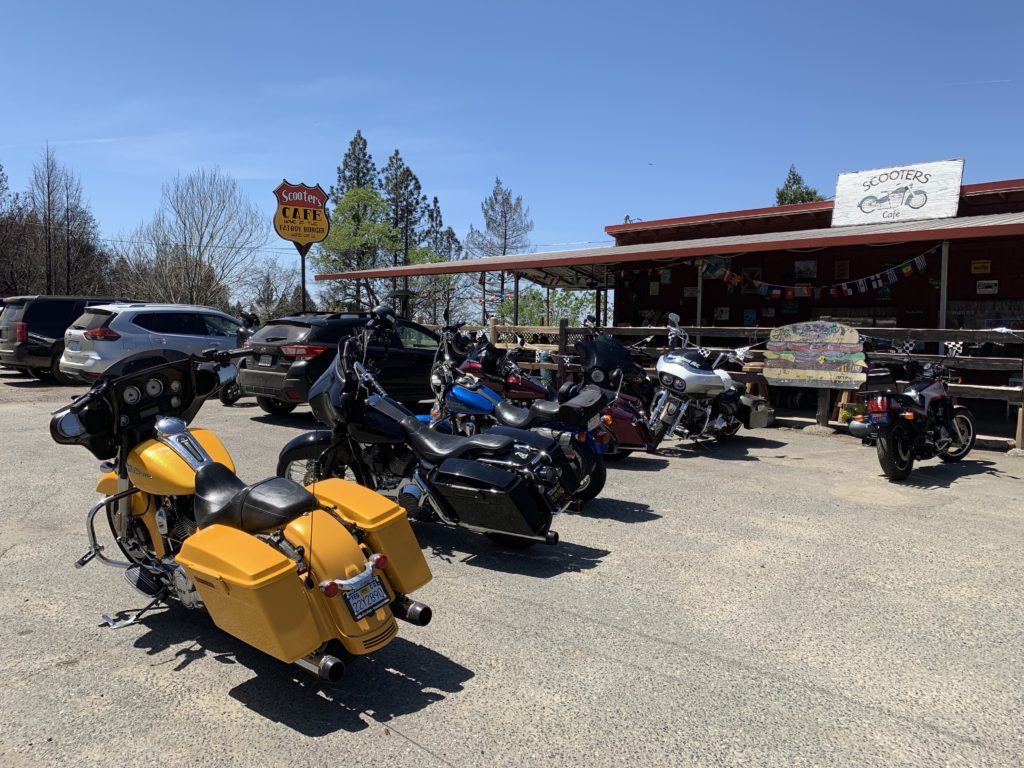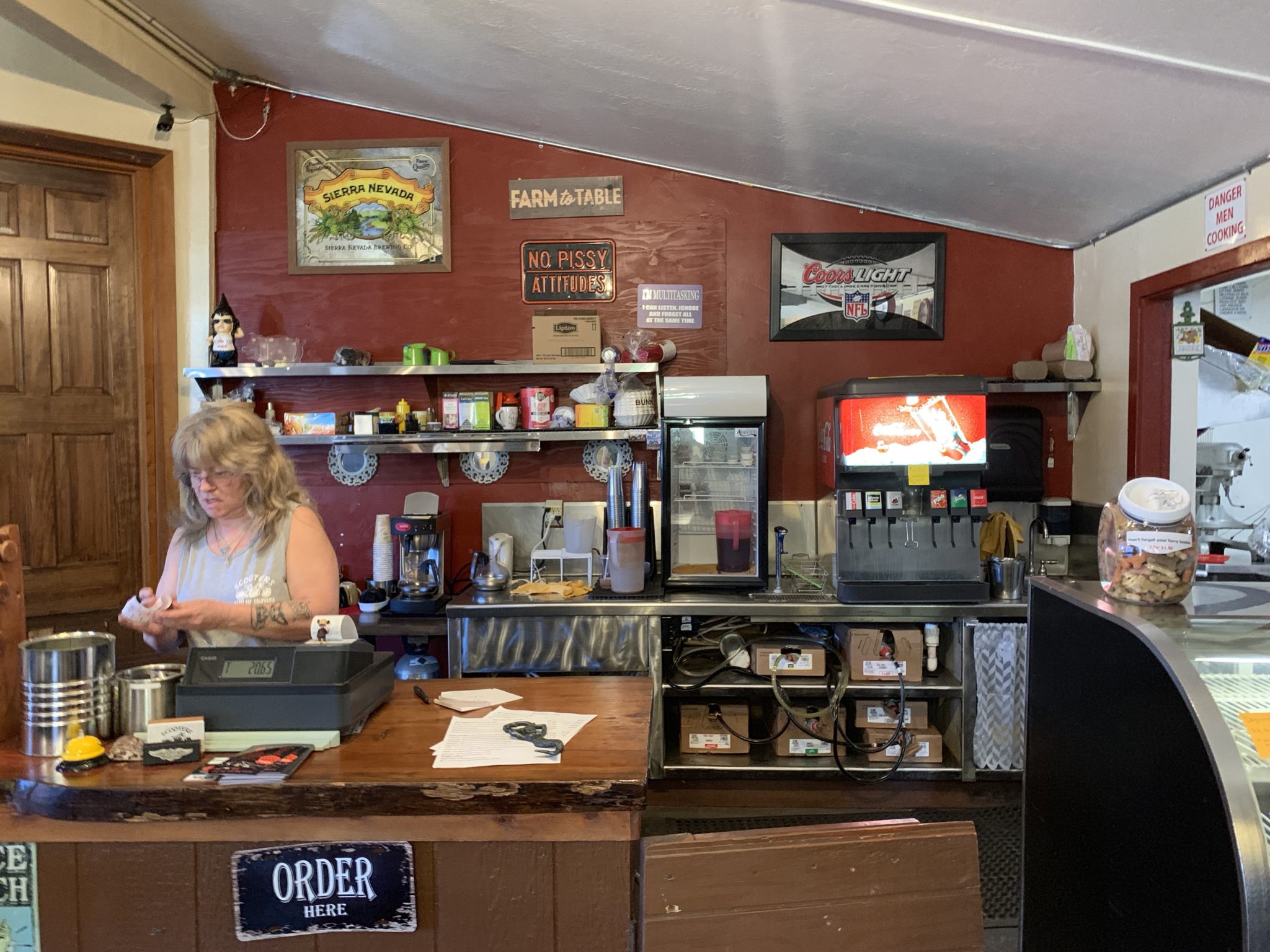The Camp Fire was reported at 6:33 a.m. on November 8, 2018. That morning, Kim looked out a window and could see the blaze burning toward their home. Suddenly, the wind shifted. While Kim and Chris’ trailer and partially constructed tiny home were spared, their storage container went up in flames. Kim thought their belongings would be safe, but a wood floor in the storage container led to the destruction of their most prized possessions. But, she stays optimistic; material things can be replaced but people cannot.
It is not uncommon to see wildfires in the area, as there have been four notable fires since the turn of the decade: one in 2000, another in 2008, a third in 2012, and the Camp Fire in 2018.
Concow, California is named after the Konkow Maidu American Indians. The breathtakingly beautiful area was home to several hundred people and hundreds of thousands of trees, but almost all of it was destroyed in the Camp Fire. Three buildings survived though, Yankee Hill Hardware Store, Canyon Lakes Market, and the only local restaurant, Scooter’s.
People come from all over to eat at Scooter’s Cafe on California State Route 70 and Deadwood Road, especially motorcyclists, who either stop before their trek up Cal 70 or on their way out. The cafe hosts bike rallies and bike nights in the summer, with awards for the best bikes.
The sound of motorcycles preceded a group of men with beards, mustaches and tattoos who pulled into the gravel parking lot. They parked their bikes and walked into the restaurant. They dressed in jeans, hats, sunglasses, black biker boots, and black leather vests with appliqués that read, “Booze Fighters.”
Dan and Bonnie Salmon own the cafe. Bonnie was working behind the counter, dressed in jeans and a grey Scooter’s tank top. She calls out an order for Carrie and delivers the food to her table. The menu offers salads, burgers, sandwiches, ribs and tacos. The most notable item, “the Fatboy,” a $12 half-pound burger topped with cheese, bacon, mushroom, lettuce, tomato, onion and homemade sauce, served on a toasted roll.
The patio was littered with bikers, construction workers, and local patrons, all enjoying afternoon lunch. An elderly couple, Marilyn and Bill, sat across from each other drinking soda. A black and white service dog with a neon orange harness laid beneath them.
“We’re just trying our best to help each other,” Marilyn said. “It’s sad to see the people you love going through so much.”
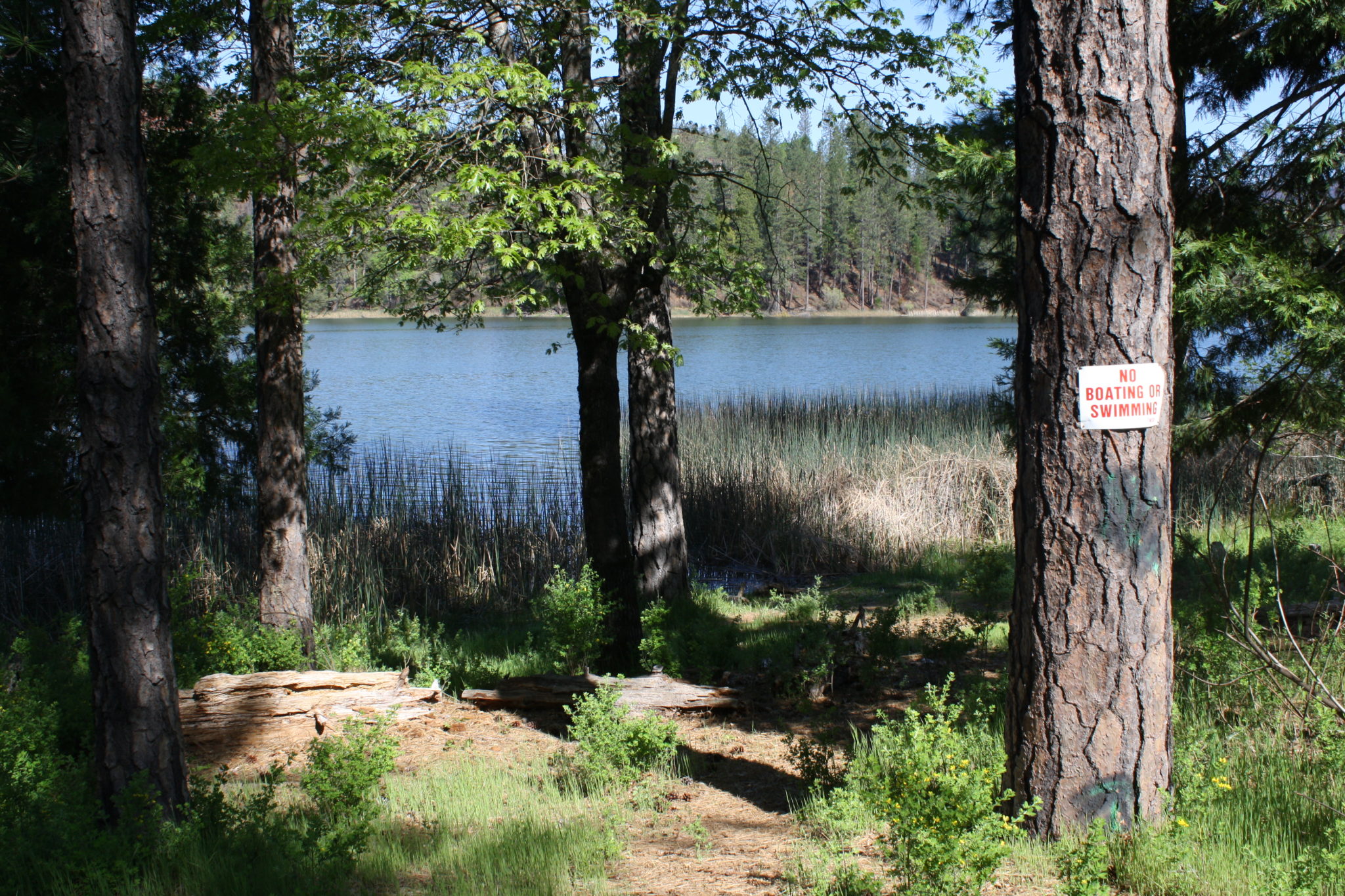
The fire has forever changed the lives of thousands, traumatizing some in unimaginable ways. The Camp Fire drove residents into Concow Lake, where they rushed into the water to escape the flames. There was about 90 people standing on a little island in the lake before Brandon Hill, who owns a property near the water, got a canoe and began helping people out.
The scene is reminiscent of the Peshtigo Fire in Wisconsin, greatest forest fire disaster in American history, when at least 800 people lost their lives in 1871.
“People ran into the river, bobbing up and down, because there was no way to fight it,” said Scott Knickelbine, author of The Great Peshtigo Fire: Stories and Science from America’s Deadliest Firestorm. “They couldn’t have their head out of the water for more than a minute before their heads started to burn.”
The weather conditions were very similar in both fires; there was lot of available fuel in the area, made worse by drought and heat, which makes things very flammable. Mix those conditions with 70 mph gusts of wind, and it doesn’t take much to spark and flame. And it doesn’t take much more to turn that flame into a firestorm. Firestorms are so hot that aluminum tire rims can melt like wax – the melting point of aluminum is 1,221 degrees Fahrenheit – a situation like that takes on a physics of its own.
People who have never witnessed a wildfire, especially one of such magnitude, might not know that the right side of a plastic white picket fence could cement to the ground, while the left stands tall and untouched. They might not know that an entire house might burn to the ground, while the wooden gazebo and patio chairs in the backyard go unscathed. They might not know that half of a car could go up in flames, burned orange and brown, while the paint on the other side is still shining. This is the physics of a firestorm. And people tried to fight it.
According to various accounts, a man from Concow kept driving back into the fire to save people until his truck melted. A garbage man ran into an elderly woman’s house to save her. People saw an old woman outside in her pajamas and slippers, watering her house in an attempt to save it. Another woman, dressed in a bath robe, stood on the street in Paradise, directing traffic during the evacuation. These are the faces of the fire.
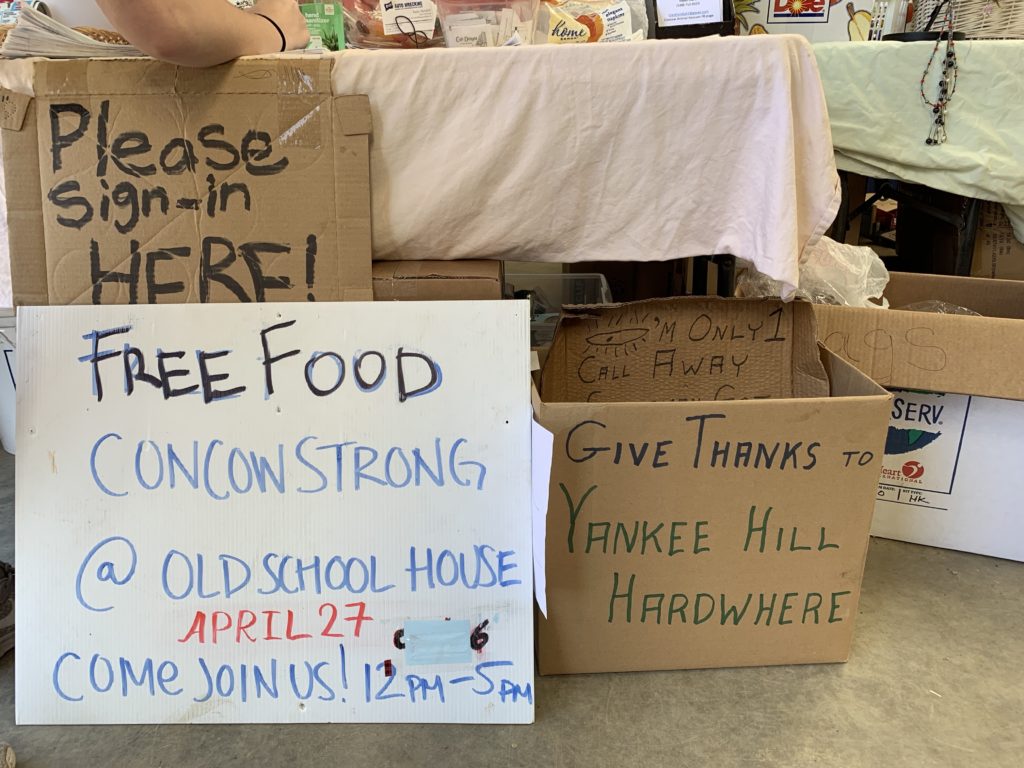
Welcome to the distribution center. 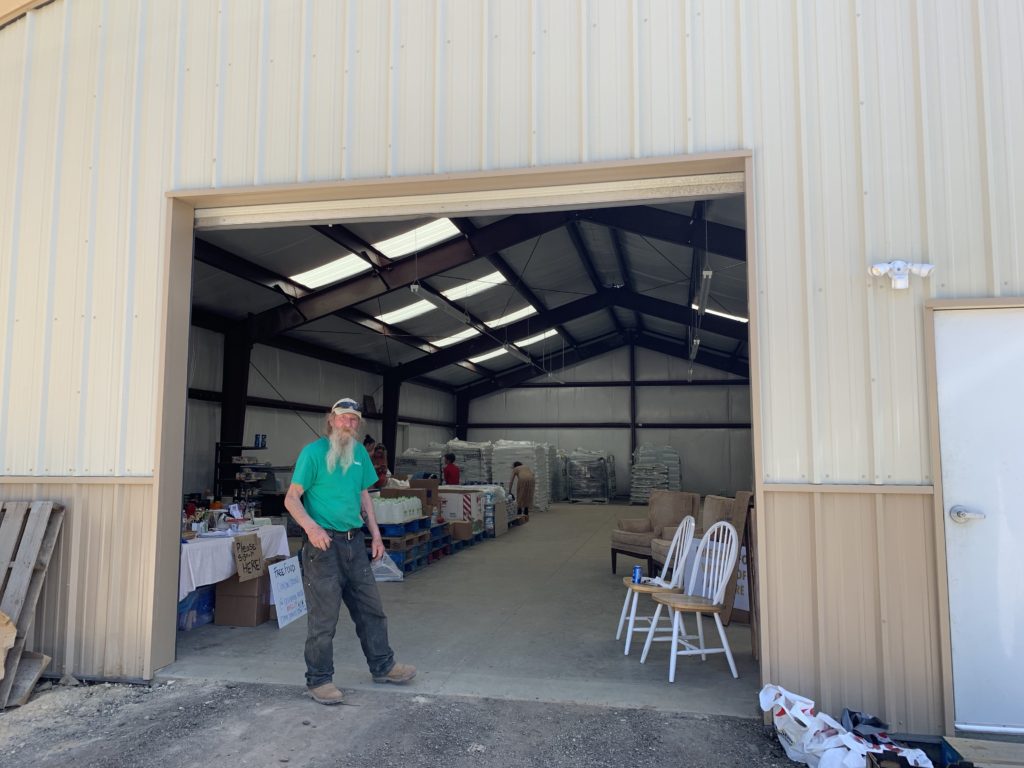
David Desmond at the distribution center.
Through it all, some members of the community have stepped up to help and provide for others. The Pines Yankee Hill Hardware Store, one of the three buildings to survive, has become a hub for Concow residents. A small pug runs around the property greeting customers. It is a new pup, after the owner accidentally ran over his old dog during the evacuation.
“We try to clean it every day, but you know, a lot of people miss,” said a bearded man behind the cash register when a woman asked to use the restroom.
Steps away from the main store sits a brand new building, a distribution center, which was swiftly built after the fire. A pair, Nicole Newman and David Desmond, work together to support the people of Concow by providing food, water, clothes, toys, and much more. The distribution center is open from 10 a.m to 2 p.m, and they see about 50 to 60 people each day.
It is a situation in which the agents for recovery are also in recovery themselves, as Nicole and the rest of her family have been displaced. She used to live in the Big Bend trailer park. Now she lives behind Canyon Lakes Market with her four kids, one cousin, her brother and sister-in-law, and their three kids.
Running around alongside the pug is Nicole’s seven year-old nephew, Scott, dressed in a red t-shirt, blue shorts and DC shoes with dirt on his face and legs.
Most people come in for the necessities like food, water and clothing, but even adults come in looking for miscellaneous items like Legos. Victims of the fire seeks a sense of normalcy.
“It’s the littlest things that make people happy.” Nicole said.
Unfortunately, the good is always accompanied by the bad. Some are attempting to take advantage of people who have already lost everything. At the distribution center, when pallets of diapers come in, visitors would take them for free and resell them to Wal-Mart for money. Now they must unbox the diapers, among other things, to prevent theft.
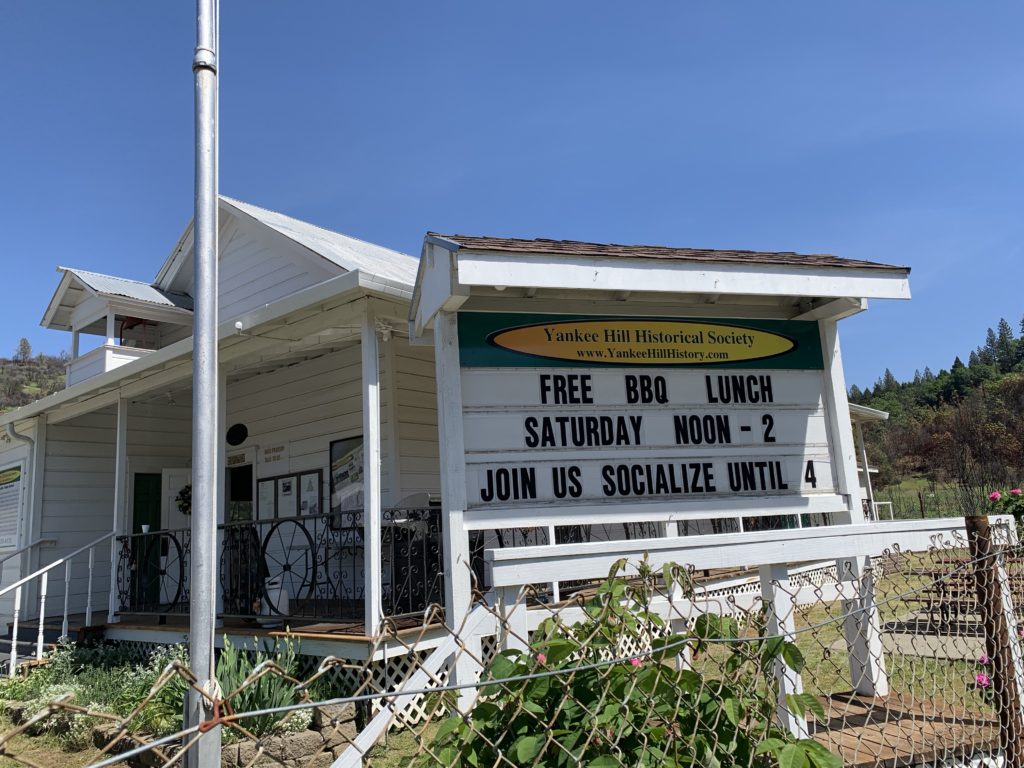
While some decide to scavenge the remains of peoples’ lives, others attempt to provide. At the Yankee Hill Historical Society, two Russian men from Sacramento host a free barbecue lunch from noon to 2 p.m every Saturday. They see about 50 to 80 people every weekend.
The small, white building was the Messilla Valley School, which operated from 1856 to 1966. After sitting vacant for years, the school was moved and restored by the Yankee Hill Historical Society. Inside the schoolhouse, the wooden floors creak as residents gather around food and friends. The white panel walls are adorned with chalkboards and old maps. The green shades are pushed up to allow light to flood into the space, packed with plastic white tables and chairs.
On one of the tables sits a pen and an open notebook, which says, “Please write your needs here and we will try to help you!” A couple, Ryan and Tammy, inquired about a wheelbarrow. A woman named Meralee asked if anyone knew how to repair a log splitter. Another woman named Kimm was looking for a toy hauler, a Travel Trailer RV, to live in.
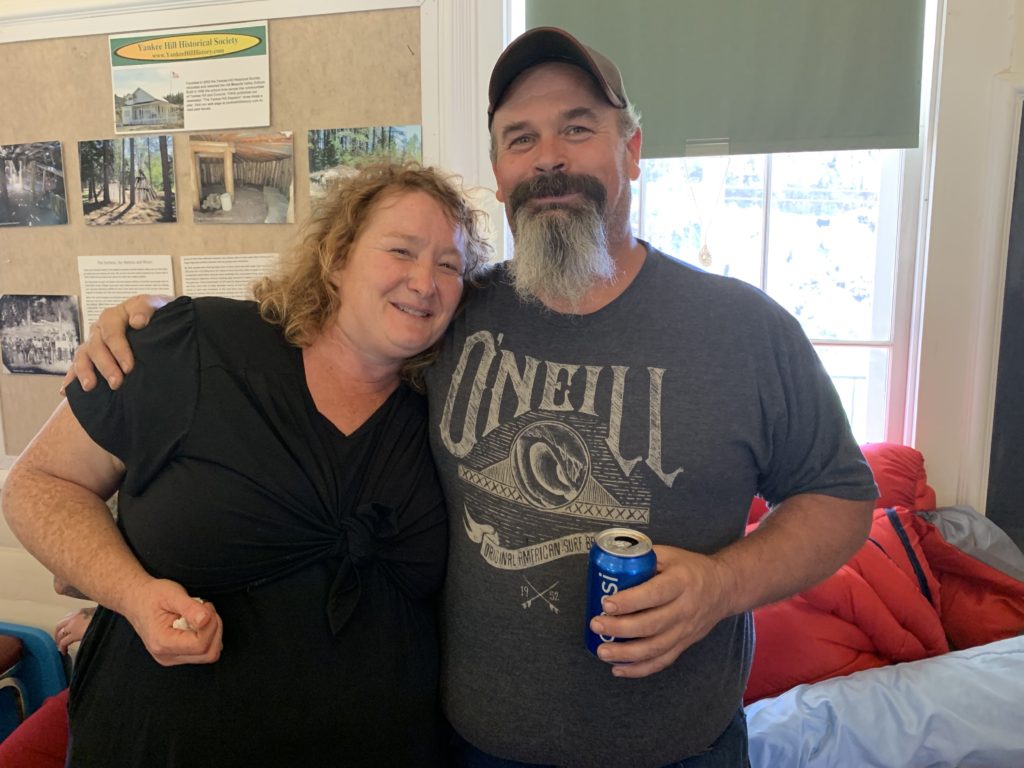
A couple, Clara and Rob Barber, who have been in the area since the 1990s, also came to lunch. They own 40 acres of land on Lake Concow. They lost their home in the fire, but have become one of the first people in the area to attain a building permit after clearing their land. They are months, if not years, ahead of everyone else. Rob works in construction, and with the help of a few more people, he and Clara should be able to move into their new home in about eight months.
“The news coverage kind of helped Paradise a lot,” Rob said. “Paradise was always on the news. ‘You live in Concow, you didn’t get burnt.’ No, it started here. It came over our mountains and ripped right through this place.”
Interestingly, before Clara met Rob, she lost her first home in the Poe Fire of 2001. She was a single mother, carrying a four-month old baby, cleaning up the ash on her property.
Looking ahead to the future, the people of Butte County have a lot of work to do. They are in the first phase of rebuilding, debris removal. There are over 400,000 trees to be removed. The project is expected to take between 9 and 12 months, with 128 crews working to get the job done. Despite the daunting task of having to put their lives back together, everyone who has stayed in the area remains hopeful.
“I’m a fire veteran,” Clara laughs. “My daughter says a fire in Concow is like being bit by a mosquito. It happens at least once ever summer.”
